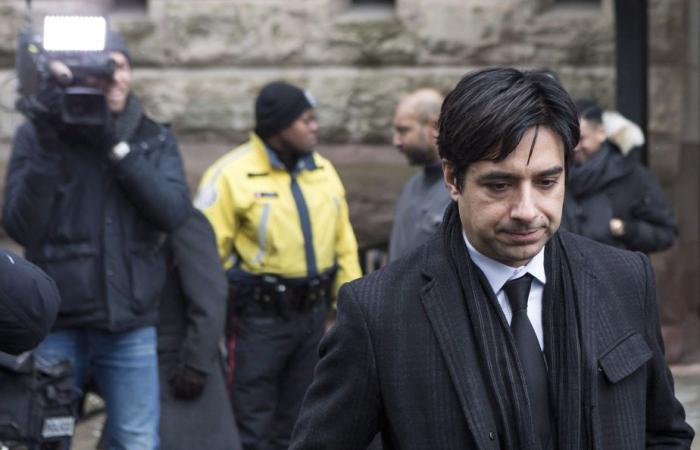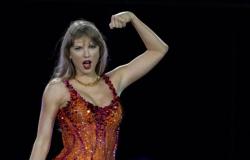When I read an article from Montreal Journal last week regarding the singer Kevin Parent, who said he regretted his past behavior which had led to his cancellation, I said to myself: “That’s it, we are in a new movement, that of return of canceled ! »
Published at 12:57 a.m.
Updated at 7:00 a.m.
In the summer of 2020, a significant wave of denunciations affected many men, targeted by allegations of a sexual nature. Parent was one of them. Four years later, he returns to this period which deeply troubled him.
He is not the only one of the canceled Quebecers to attempt, initiate or succeed in a comeback. Recently, we have been able to witness the return of Maripier Morin to the radio. Betty Bonifassi gave two sold-out concerts at the end of the summer, her first after the cancellation of SLAVIC for cultural appropriation. Éric Lapointe fills his rooms and sees his faithful return. Comedian Julien Lacroix, from small to medium-sized venues, reconnects with the public by recounting his banishment in a successful show, in my opinion.
It’s starting to get crowded. There, you wonder: well let’s see, was there an official note inviting all those canceled in the province to return under the spots ? Is the time for therapy over? Were the sentences lifted by a secret UDA committee? Did I miss something? Intriguing and sudden that this phenomenon of returns…
But before we talk about returns, let’s talk about cancellation.
PHOTO CHRIS YOUNG, ARCHIVES THE CANADIAN PRESS
Former CBC host Jian Ghomeshi during his sexual assault trial in 2016
It has now been 10 years since this groundswell of excluding an individual from social life because of reprehensible behavior, for various reasons, has gained momentum. In 2014, the successful CBC host Jian Ghomeshi, following allegations of sexual assault, reluctantly launched the canceled ball. The case will trigger the movements #BeenRapedNeverReported and #AgressionNonDdonné. In 2017, it’s the Weinstein affair, the #metoo wave, #metoo, #balancetonporc. In 2018, accusations of cultural appropriation led the Montreal International Jazz Festival to cancel the show SLAVIC. In 2020: Black Lives Matter leads to denunciations for alleged cases of racism, let’s think about the Lieutenant-Duval affair and the “word that begins with N”…
The reasons for canceling are multiple: heightened sensitivity, proven attacks or rapes, including sometimes violent ideological postulates. Bans aim to exclude a word, from an individual, according to an axis of Good or Evil which leaves no room for doubt.
Once the “suspects” are branded with the X of infamy and shamefully holed up in their basements, what happens? Is public space “purified”?
Meanwhile, everyone is on guard. Academics self-censor for fear of being “cancelled”.
So we’ve been canceling each other for 10 years. At the beginning, there was very little question about what happened AFTER. Would the canceled gradually or en masse leave their hideouts on an official date, or should they remain hidden, modest, forever? Would they dare to represent themselves? Not all of them went through official justice, many were denounced on anonymous lists, others accused of cultural appropriation when they were in good faith, but too candid.
In addition to the banned people and the victims, the cancellations also caused collateral damage: the families, the loved ones of those canceled. Many canceled found themselves without a source of income and tried to retrain. Most concluded that they only knew how to – and liked – doing their job.
This undoubtedly explains this wave of returns that we are currently witnessing. A real process is underway. Those who, in the cultural world, attempt a return all take the same path. Work on oneself, therapies, repentance, modesty. Small rooms. Then a calibrated media appearance, an article or an exclusive interview on a TV show, with the hope of an upcoming redemption.
All this raises good questions, fundamental ones, even.
What about the victims? What do they think of this feedback?
Who forgives? Peers, the public, society? Is this self-forgiveness?
Who can come back to the forefront?
What is absolutely not forgivable and which will never return on stage or at university, under any circumstances? Who are the absolute pariahs now?
In this whole process, who gained power? Has society, purged of its proven and suspected sinners, become less impure, cleaner? Many are now careful about what they do and say. There has been indisputable progress, social changes have occurred and are visible. New codes of conduct are required, large organizations are adopting EDI (equity, diversity and inclusion) programs.
But what does this great movement of returns say about us? Could it be that there is brewing, among the general public, a suspicion of fed-up, a touch of exasperation, or even the beginnings of a backlash in the face of years of all-out cancellations? To ask the question is to tread in a minefield…
What do you think? Participate in the dialogue







